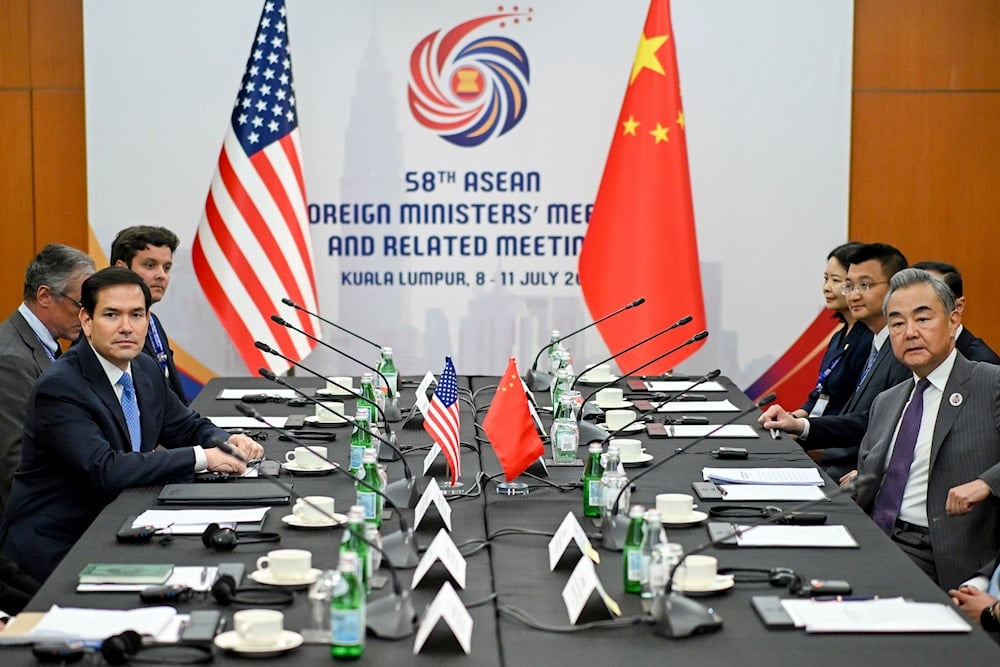China seeks US ease on AI chip export restrictions in trade deal: FT
Beijing is pressing Washington to relax export restrictions on high-bandwidth memory chips crucial for AI, as a potential Trump–Xi summit approaches.
-

US Secretary of State Marco Rubio meets with China's Foreign Minister Wang Yi during the 58th ASEAN Foreign Ministers' meeting and related meetings at the Convention Centre in Kuala Lumpur on July 11, 2025 (AP)
China is expecting the United States to relax export restrictions on semiconductors essential for artificial intelligence as part of a trade agreement ahead of a potential summit between presidents Donald Trump and Xi Jinping, the Financial Times reported on Sunday.
According to the newspaper, which cited unnamed individuals familiar with the matter, Chinese officials have informed experts in Washington that Beijing is seeking the Trump administration to ease export curbs on high-bandwidth memory chips.
Requests for comment on the report were not immediately answered by the White House, the State Department, or China’s Foreign Ministry.
HBM chips, which accelerate data-heavy AI tasks, attract close attention from investors because of their pairing with AI graphics processors, especially those from Nvidia, and, according to the FT, China is worried that US restrictions on HBM are limiting the capacity of Chinese firms such as Huawei to create their own AI chips.
US loosens restrictions on AI chips to China
Successive US administrations have restricted the export of advanced chips to China to hinder Beijing’s progress in AI and defense, and while this has constrained the ability of US companies to fully meet the surging demand from one of the world’s largest semiconductor markets, it continues to serve as a significant source of revenue for American chipmakers.
Previously, on August 8, a US official told Reuters that the Commerce Department had begun issuing licenses to Nvidia permitting the export of its H20 chips to China, removing a significant barrier for the AI leader to regain access to an important market.
Last month, the US reversed an April ban on selling the H20 chip to China, after Nvidia had created the microprocessor specifically for the Chinese market to comply with the Biden administration’s AI chip export rules. The tech giant had previously warned that these restrictions would reduce its sales by $8 billion in the July quarter.
Jensen Huang, the CEO of Nvidia, met with US President Donald Trump on Wednesday, according to two sources familiar with the matter who spoke to Reuters, while both Nvidia and a White House spokesperson declined to comment.

 2 Min Read
2 Min Read








